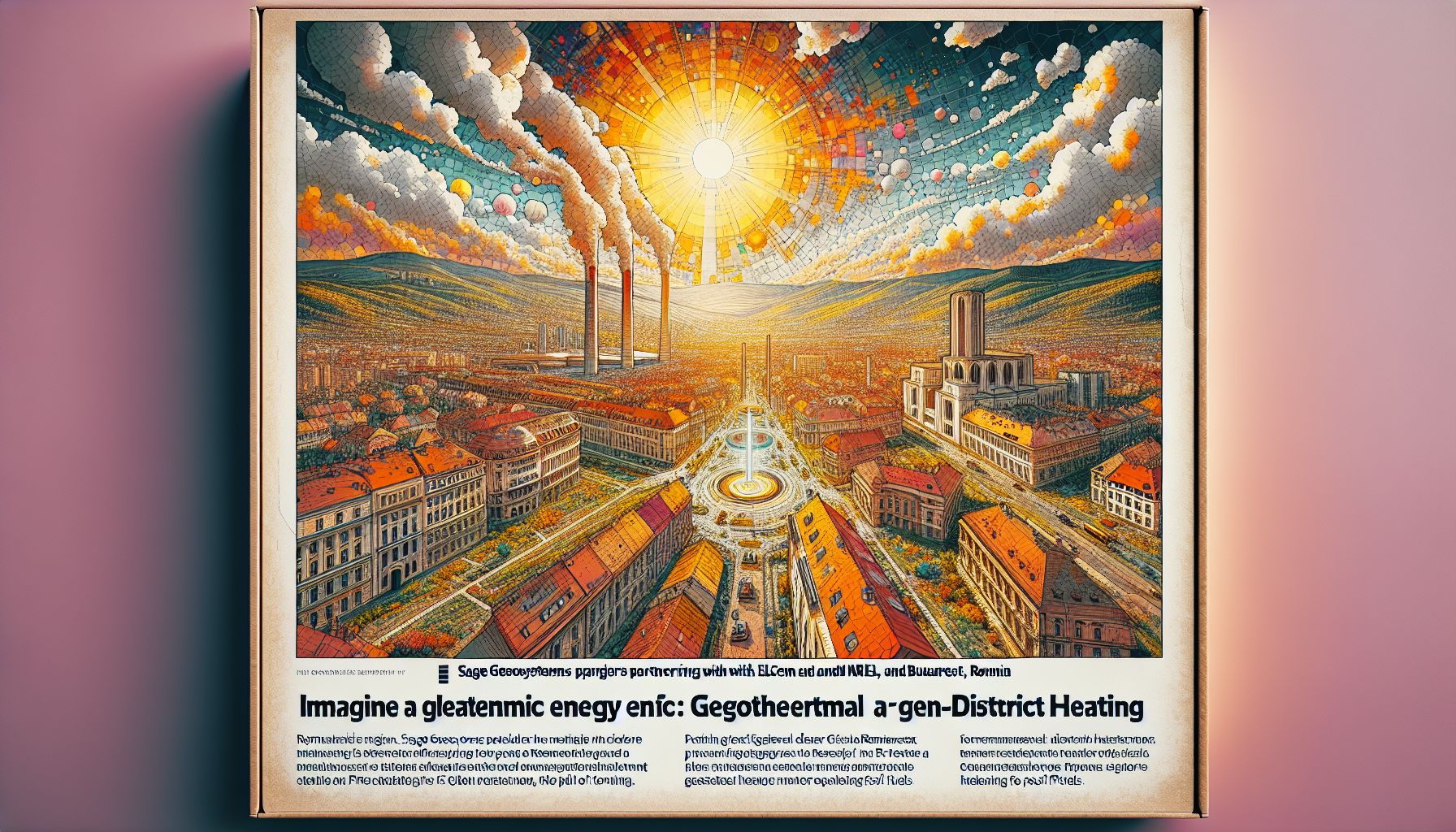Bucharest Explores Geothermal Heating in Landmark Clean Energy Initiative

Bucharest, Wednesday, 24 July 2024.
Sage Geosystems partners with ELCEN and NREL to study geothermal district heating for Bucharest, potentially replacing fossil fuels. The project aims to generate 70 MW of thermal power, marking a significant step in Romania’s transition to sustainable energy solutions.
The Players Involved
Sage Geosystems, headquartered in Houston, Texas, is a leading player in geothermal energy and energy storage. Founded in 2020, the company has amassed over 150 years of combined experience in the oil and gas industry. Sage specializes in advanced geothermal technologies, such as the Geopressured Geothermal System (GGS), which optimizes heat extraction while minimizing costs. Collaborating with Sage in this transformative project are Electrocentrale Bucuresti S.A. (ELCEN), Romania’s largest thermal energy producer, and the National Renewable Energy Laboratory (NREL), a renowned U.S. research facility specializing in renewable energy solutions.
The Project’s Scope
This ambitious project focuses on decarbonizing Bucharest’s district heating system by leveraging geothermal energy. Currently, ELCEN produces 40% of Romania’s thermal energy and 90% of Bucharest’s district heating needs. The feasibility study aims to replace fossil fuel-based thermal plants with geothermal energy, generating up to 70 MW of thermal power for a district in Bucharest. If successful, this project could pave the way for similar initiatives in other Romanian cities, significantly reducing the country’s carbon footprint.
Driving the Transition
The feasibility study is part of a broader effort to support Romania’s transition to clean energy. Cindy Taff, CEO and co-founder of Sage Geosystems, expressed her enthusiasm for the project, stating, ‘Sage is thrilled to be supporting Romania’s transition to clean energy and to introduce geothermal energy applications to its capital city.’ Claudiu Crețu, ELCEN’s general director, highlighted the potential impact of the study at the Profit Energy forum in October 2023, emphasizing the importance of geothermal heat in reducing carbon emissions for Bucharest’s centralized heating.
Potential Impact
The adoption of geothermal energy for district heating in Bucharest could have far-reaching implications. By replacing fossil fuel-based thermal plants, the project aims to significantly cut carbon emissions, contributing to global efforts to combat climate change. Additionally, this initiative aligns with the goals of the Partnership for Transatlantic Energy and Climate Cooperation (P-TECC), which aims to strengthen energy security and promote clean energy transitions across the globe. The successful implementation of this project could serve as a model for other cities and countries looking to adopt sustainable energy solutions.
Conclusion
Sage Geosystems’ collaboration with ELCEN and NREL marks a significant step in Romania’s journey towards sustainable energy. By harnessing geothermal energy for district heating, Bucharest could drastically reduce its carbon footprint and set a precedent for other cities to follow. With the combined expertise of Sage, ELCEN, and NREL, this project has the potential to transform Bucharest’s energy landscape and contribute to global efforts to combat climate change.

